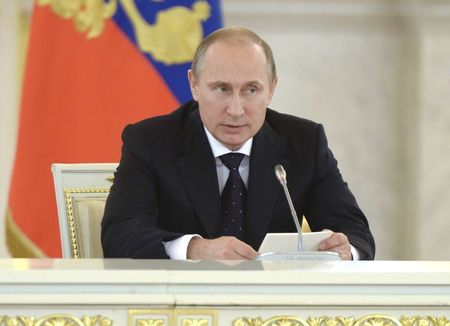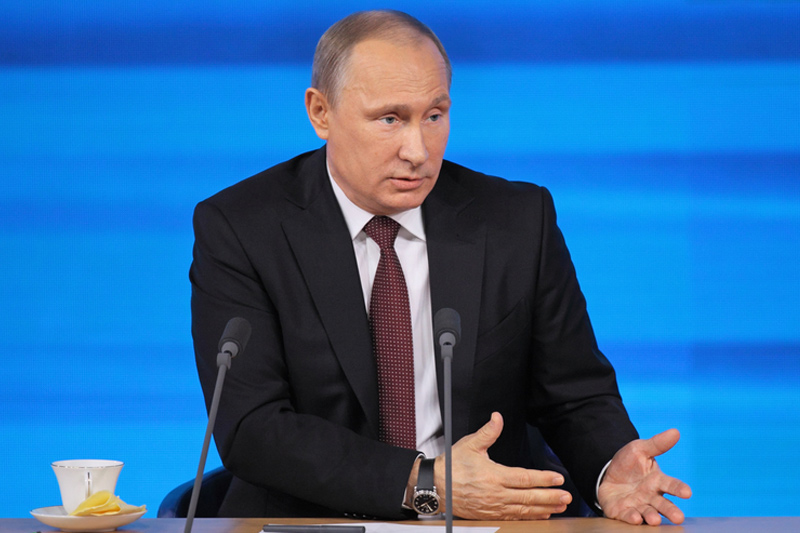By Gabriela Baczynska
MOSCOW (Reuters) - President Vladimir Putin called for an improvement in ties between Russia and the United States on Friday in an Independence Day message to Barack Obama, urging Washington to treat Moscow as an equal partner.
Relations between the two presidents and countries are at a low ebb following disagreements over the conflicts in Ukraine and Syria, and over human rights, democracy and defence matters.
"The head of the Russian state expressed hope that ... ties between the two countries will develop successfully on the basis of pragmatism and equality despite difficulties and disagreements," the Kremlin said in a statement, outlining a telegram sent to Obama on the July 4 holiday.
"Vladimir Putin also highlighted that Russia and the United States, as countries carrying exceptional responsibility for safeguarding international stability and security, should cooperate not only in the interests of their own nations but also the whole world."
The telegram underlined a message Putin has made central to his third term as president - that Russia, like the United States a veto-wielding member of the U.N. Security Council, must be treated as a world power and on an equal footing two decades after the fall of the Soviet Union.
The Kremlin statement made no reference to sanctions imposed on Moscow by Washington after Russia annexed the Black Sea peninsula of Crimea in March, or to other differences between the two former Cold War enemies.
But the call for "pragmatism and equality" in relations suggested Putin put the onus on Obama to improve ties.
The language was less upbeat than in last year's Independence Day telegram, in which Putin expressed "certainty" that Moscow and Washington would be able to work out solutions to various issues "regardless of the fact that not all approaches of the sides concur".
The telegram sent on July 4, 2012, at the height of the Syria conflict but long before the Ukraine crisis, was also more positive, referring to an improvement in preceding years and presenting an optimistic outlook for the future.
DECLINE IN RELATIONS
Relations have deteriorated particularly since Russia annexed Crimea following the overthrow of Viktor Yanukovich as Ukrainian president. He had spurned a trade pact with the European Union in favour of better ties with Moscow.
Russia accused the United States of supporting protests against Putin before his re-election in 2012 and Washington has accused Moscow of suppression of his opponents and of gay rights.
Putin reiterated complaints this week the United States was trying to "contain" Russia, using a term from the Cold War era.
Other Russian officials have also taken a tough line this week, deflecting Western accusations that Moscow did not do enough to ensure pro-Russian separatists who have risen up in eastern Ukraine stuck to a ceasefire last week.
"In fact, we are dealing with a new offensive type of weapon," Deputy Foreign Minister Sergei Ryabkov told Kommersant newspaper in a reference to the U.S. sanctions, which impose visa bans and asset freezes on a number of Russian firms and officials.
Another senior official goaded the United States by challenging its domination of world affairs.
"The hegemony of the U.S. on the world stage is over," Yevgeny Lukyanov, deputy head of the Russian Security Council comprising defence and security officials, told RIA news agency.

Personal relations between Obama and Putin appear cool as efforts continue to end the violence in east Ukraine.
Putin is now weighing whether to engage more with Obama on Ukraine or risk more sanctions that could undermine Russia's economy, already on the verge of recession.
(Editing by Timothy Heritage and Andrew Roche)
